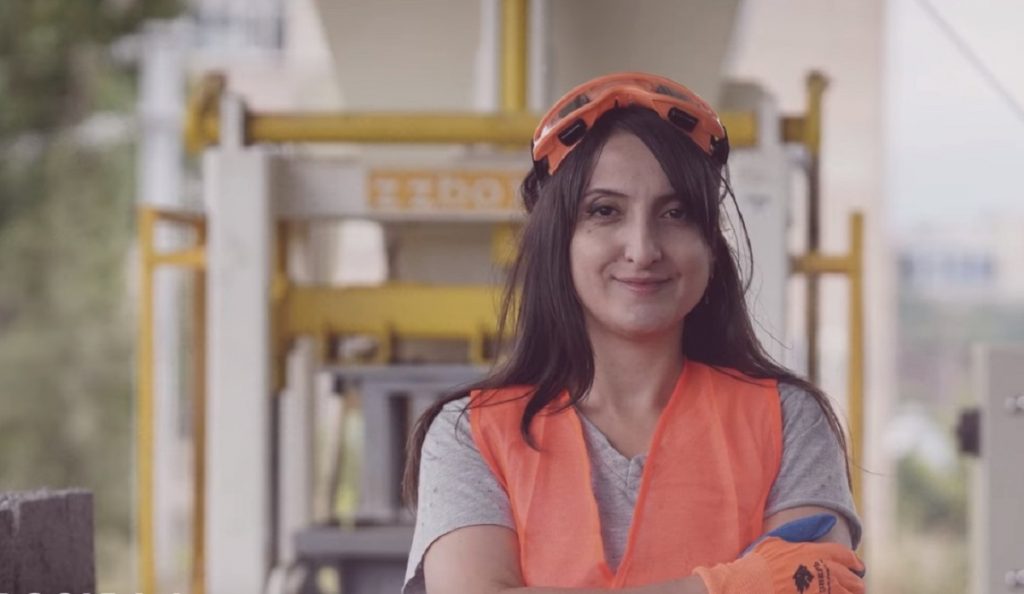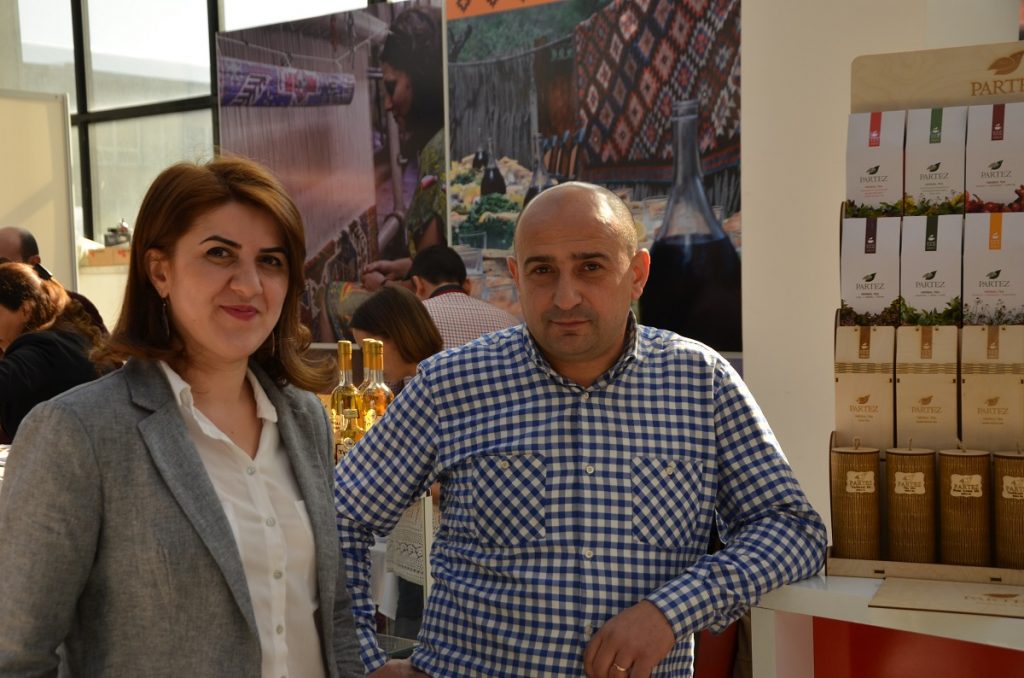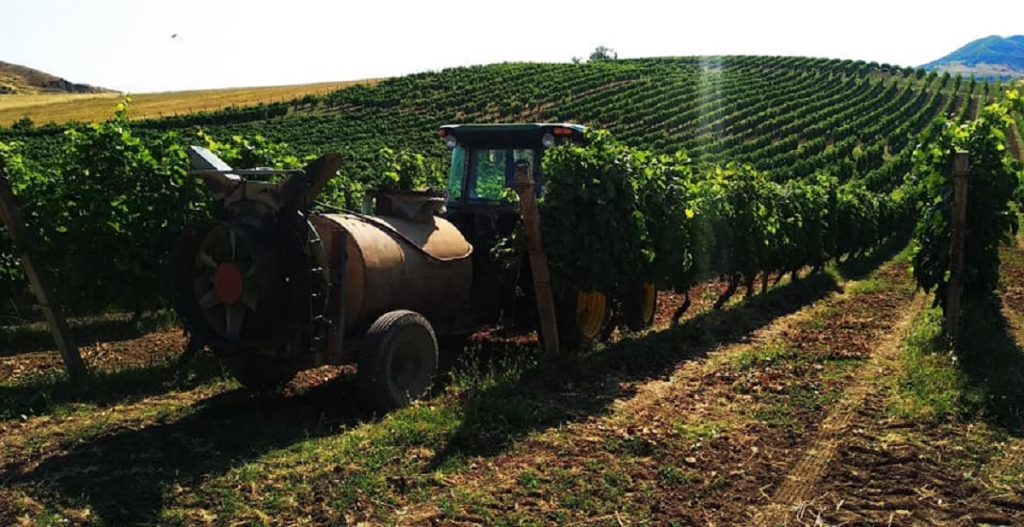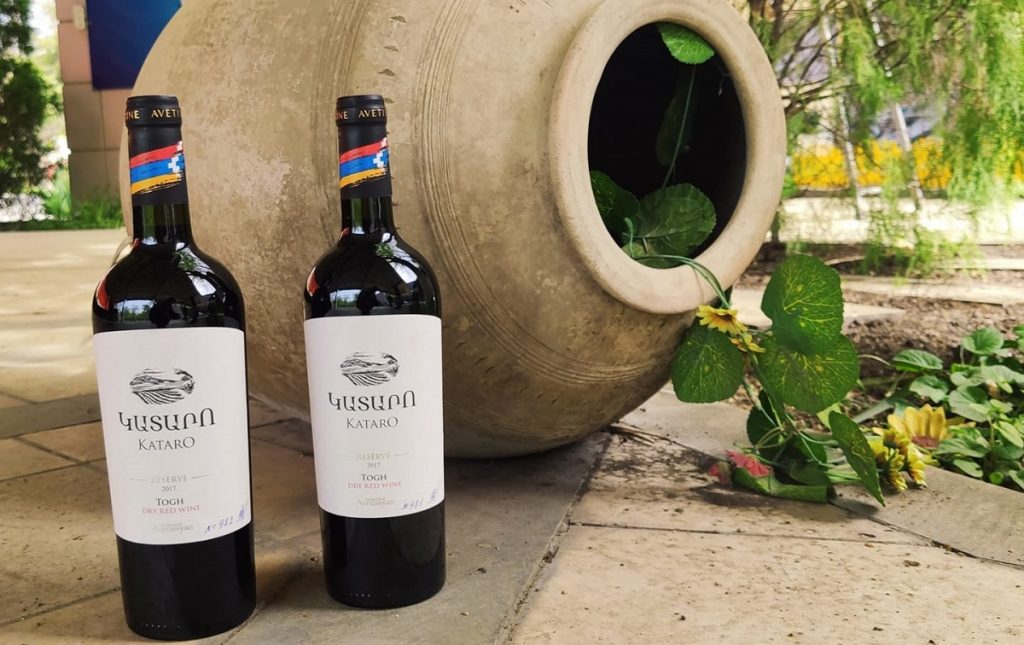How are Karabakh residents restoring their businesses after the war?
Shortly after the war, Nagorno-Karabakh was hit with another hardship – that of economic recession. However, despite all the difficulties, Karabakh residents are beginning to restore their businesses, as they believe that by doing that they can contribute towards the economic recovery of the region.
Local authorities intend to facilitate the efforts of Karabakh entrepreneurs by introducing a flexible tax policy, and a mechanism for granting benefits to local businesses.
- Residents and eco-activists protest against mine development in north Armenia
- ‘Black Gold’ of Armenia: How can copper boost the Armenian economy?
Decline in economic activity
The economic activity in Nagorno-Karabakh fell sharply this year, and, as per the data of the statistics service, in January-March 2021, it decreased by 37.1% percent compared to the same period last year.
The decline is observed in all spheres of the local economy, but the sharpest decline occurred in the sphere of trade which fell by 46.9%, while in the construction sector, the indicator fell by 41.5%
In terms of production volumes, the industrial indicators decreased the most, by a total of 54.5% and the gross agricultural output fell by 42%.
The volumes of exports (46.5%) and imports (51.2%) almost halved.
State benefits for entrepreneurs
In order to increase economic activity, Nagorno-Karabakh is introducing a set of measures with the main emphasis on a flexible tax policy and the provision of benefits to local businesses.
Taking into account the need for large investments in the economy after the war
- until January 1, 2026, the sale of local agricultural products, as well as transactions for the alienation of apartment buildings under construction, will be exempt from VAT;
- 50% of taxes paid by companies and individual entrepreneurs over three years will be used to pay off loans and interest on loans taken before October 1, 2020;
- interest payments on business loans up to 15 million drams [approximately $ 30,000] for the period from September 27, 2020 (from the day the war in Karabakh began) to April 1, 2021 will be reimbursed by the state.
Daughter continuing her father’s work
Karine Grigoryan from Stepanakert has been heading the brick production business since 2019. She was 35 when her father died, and she decided to continue his work. Restarting a worn-out workshop with outdated equipment was not easy, especially since she knew nothing about the family business.

Karine is an economist who used to work in one of the local banks and she had to learn all the intricacies of brick production from scratch. At the very beginning, using all the money she had, Karine bought only the most necessary equipment and set up the small volumes of products.
Business revived in 2020 thanks to the All-Armenian Charitable Union’s program to support women in business. Within the framework of the program, Karine received a special prize and acquired a new conveyor.
“When we only began to become more active, the war started. In early October, the situation became so tense that it was no longer possible to stay in Artsakh. My mother and I left everything and went to Yerevan and waited for when we would be able to return”, says Karine.
They returned at the end of 2020 and while Karine was developing a plan for further actions – how to install new equipment and automatize the production – the state program of tax incentives came to her rescue.
“If it were not for tax exemptions, we would not have been able to restore production. Now we do not pay VAT and income tax and we have started to work actively again. Since construction work is underway in Artsakh now, the demand for bricks is growing”, says Karine.
She intends to double production and hire new employees:
“We ourselves have to equip our homeland. I don’t even think about leaving. I hope that we can all rebuild our country together – at least what is left of it”.
Registration, export and stability
Founded in 2017, Biopartez, the first tea production company in Nagorno-Karabakh, has gone through a difficult path. At first, all the work on the collection of tea bouquets was carried out by hand, making it a labor-intensive production.
In 2019, the founders of the business took out a loan and purchased the necessary equipment, which made it possible to increase production volumes, especially since the demand for products increased.
“In the spring of 2020, it was necessary to temporarily suspend activities due to the coronavirus, but the government postponed the loan repayment period for several years. We have not yet overcome the problems with the coronavirus – the war has begun, and life has stopped here altogether”, says one of the owners of the company, Anushavan Sarukhanyan.

During the war, the founders of the company were afraid of losing everything that they had been creating for many years.
Now, six months after the end of hostilities, they are more concerned about the country’s future.
“It is unclear how tomorrow will turn out. Is Artsakh now Armenia or not? Political issues have always hindered business here, especially with the issue of registering your business. We need to write ‘Made in Armenia’ instead of ‘Made in Arstakh’ on our products”, Anushavan Sarukhanyan says.
Anushavan adds that one of the main problems of local entrepreneurs is the organization of exports. Therefore, they have repeatedly discussed the possibility of exporting through a common network. But so far the problem remains at the level of discussions and since there is no single approach to exporting, companies try to solve the issue themselves, by all means necessary.
The entrepreneur positively assesses the state support programs, but in the post-war period, he considers long-term stability in Nagorno-Karabakh to be more important for business development. Anushavan vouches for himself and his business partners – they will stay here and will continue to work, despite the difficulties.
Production of Kataro wines will continue
High-quality Kataro wines are known and loved not only by the locals. Before the war, wine was produced in the village of Tokh in the Hadrut region.

During the 44-day Karabakh war, the Avetisyan family, who founded this company, lost their factory, along with all equipment and property, as the territory of the village came under the control of Azerbaijan. Over the past 10 years, Kataro wines have turned into a very popular Armenian brand, and many people, along with the owners of the brand, have been worried about the future of Kataro wines.
“During the war, my brother and I also fought, fought for a long time, hoping that we could keep Hadrut. Over time, it became clear that we would not succeed, that we would lose it”, recalls the co-owner of Kataro Grigory Avetisyan.
After that, the family did nothing to save the property. Gregory says that during the war, people lost children who died on the battlefield, there was no time to think about equipment.
On the last day of the defense of Hadrut, they only managed to transport a small batch of aged wine to Armenia. Now the owners of the company are making new plans for their activities.
“I will continue to produce wine anyway; I will build a winery from scratch again. And I will buy grapes from Artsakh, especially since one of the varieties only grows here”, says Grigory.
At the expense of credit funds, he has already ordered the necessary equipment for the new winery, and the area where it will be built is already being cleared out.
Grigory says that he never used state support programs:
“It is not in my character to go and ask for something. When they offered help, I felt embarrassed. Why help me? I myself can try and help the others”.
The Avetisyans intend to preserve the Kataro wines as a “unique heritage of Nagorno-Karabakh and a symbol of the firm spirit of the Armenians”/

All Karabakh entrepreneurs that we have interviewed talked about the need to strengthen the fragile peace in the region, which will then become an incentive to revitalize existing businesses and create new ones.


















